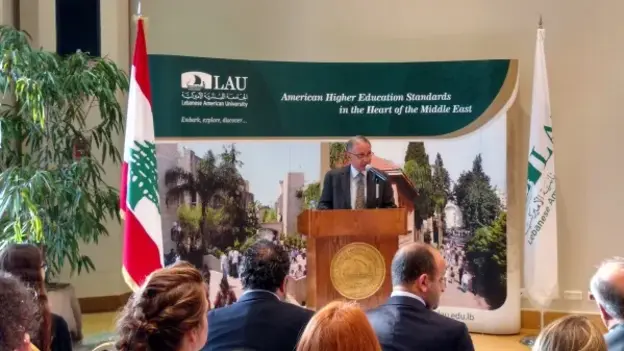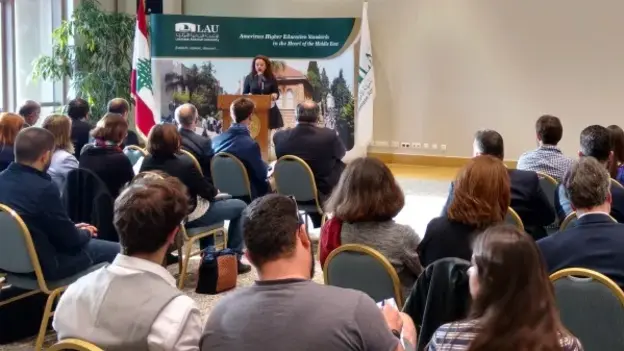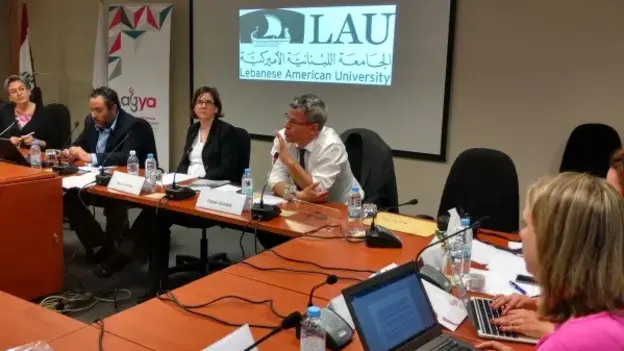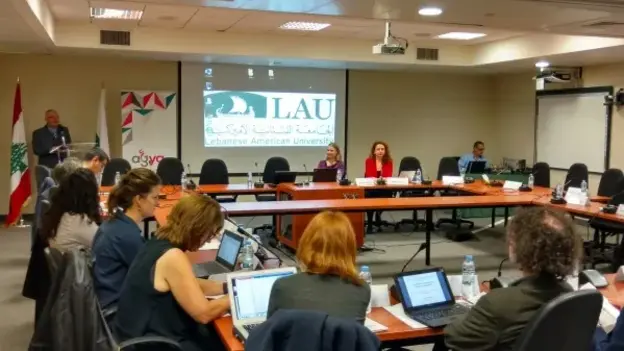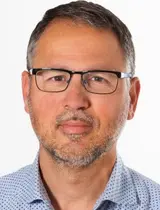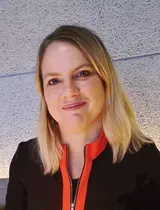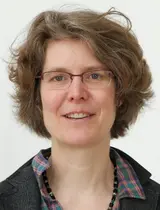Working Group Project
Refugee Transfers in the Euro-Arab Mediterranean Zone
Workshop
AGYA members Dr. Tamirace Fakhoury and Dr. Jenny Oesterle organized the international AGYA workshop on ‘Refugee Transfers in the Euro-Arab Mediterranean Zone: Tying the Past with the Present’ with the aim to discuss the role of migrants and refugees as transmitters of knowledge and contributors to social and cultural development.
Forced migration is shaping up to become one of the biggest challenges of the 21st century: According to the United Nations, globally over 65 million people are refugees or internally displaced. Today, the perception of migration movements has changed largely; security aspects came to the fore rather than the opportunity for exchange. AGYA member Tamirace Fakhoury explains this phenomenon: ‘Since the onset of the 2011 Arab uprisings and ensuing upheavals, responses to displacement have been overwhelmingly tackled through the prism of securitized narratives, policies and restrictive border management practices’. Countering this approach, Fakhoury and Jenny Oesterle – organized the international AGYA workshop on ‘Refugee Transfers in the Euro-Arab Mediterranean Zone: Tying the Past with the Present’ with the aim to discuss the role of migrants and refugees as transmitters of knowledge and contributors to social and cultural development. ‘We want to produce theory-guided and empirically-based research and methodologies on refugees as agents and transmitters of cultural, political, economic and societal norms’ explains Fakhoury. To capture the interconnectedness of migration, the workshop traced the approaches peoples chose throughout the ages to receive and integrate migrant populations. For this, the organizers united historians, archeologists, political scientist, sociologists, anthropologists and others, specialized on different time periods and geopolitical contexts. The AGYA workshop in cooperation with the Heidelberg University took place from 10 to 12 April 2017 at the Lebanese American University (LAU) in Byblos – a core region of today’s so-called refugee crisis. According to the UN, Lebanon is the country with the highest number of refugees per capita, and the second highest total number of Syrian refugees after Turkey.
Migration is not a modern phenomenon
‘Flight, displacement, persecution and protection of refugees are not only currently relevant but have a historical dimension which reaches far back to the premodern era’, explains AGYA member Jenny Oesterle. The area, which we consider today the Mediterranean, has benefited from a comprehensive exchange of knowledge between its northern and southern parts since antiquity. By adopting a joint contemporary and transhistorical approach, the workshop shed light on cultural, social, and political contributions of migrants in the Euro-Arab Mediterranean countries.
Oesterle, who is an expert on the history of interreligious contact during the Middle Ages, explains that history offers many cases of ‘flight and the granting of protection, particularly when taking a comparative look at Christian and Islamic societies, when analyzing migration flows across the Mediterranean, or studying the relevance of refuge for people of another religion. ’ While today the Arab world is mostly perceived as the source of refugees, the region at many times provided a safe haven for the persecuted and displaced. ‘For centuries, Islamic societies developed their own forms of protection for Muslim refugees as well as for those of other religions, such as Christians and Jews.’
The participating scholars shared their research on forced migration throughout history, from the ancient Near East to Euro-Mediterranean ethno-religious population transfers from the Renaissance to the 19th century. AGYA member Dr. Ammar Abdulrahman, for example took a historical perspective on refugee knowledge transfer by providing information on the practice of deportation as punishment in the ancient Near East. Examples ranged from the peaceful coexistence of early Muslim refugees in 7th century Christian Abyssinia to the multicultural Arab-Christian Kingdom of Sicily during the Crusades, all the way to connect with the British post-World War II Coventry as a city of peace and reconciliation. Discussing the refugee movements from a contemporary perspective, the participants contextualized and mapped the social, political and economic contributions of refugees. Another part of the workshop was designated to cultural and epistemic perspectives on refugee knowledge transfers: AGYA member Dr. Florian Kohstall, outlined the German approach to provide refugees with an access to university education through specialized programs. The final contribution came from AGYA member Prof. Dr. Carola Richter. She presented her research on the use of social media and communication technology by refugees in Germany, on their access to information, as well as the role of rumors and expectations. The two-day workshop was concluded by a brainstorming session based on input by international organizations and civil society organizations.
- Disciplines Involved
- Arabic & Islamic Studies, History, Political Science
- Cooperation Partners
- University of Heidelberg, Germany
- Lebanese American University (LAU), Lebanon
- Venue
- Lebanese American University (LAU), Lebanon
- Project Title
- Refugee Transfers in the Euro-Arab Mediterranean Zone: Tying the Past with the Present
- Year
- 2017
- Funding Scheme
- Working Group Project
- Working Group
- Dynamics of Transformation
- Countries Involved
- Germany, Lebanon
